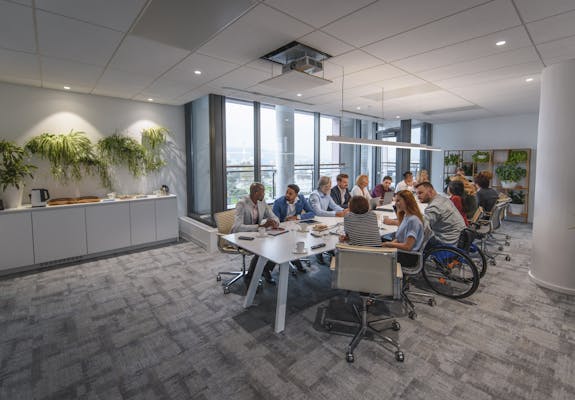Establishing psychological safety
The IMD’s research highlights the need for a more exhaustive approach that examines all six key dimensions of inclusion: psychological safety, uniqueness, fairness, participation, belonging and authenticity.
Of these, psychological safety—the belief you won’t be reprimanded for voicing ideas and concerns or making mistakes—is a key parameter.
Organizations where psychological safety is firmly embedded in the company culture are more likely to innovate quickly and adapt to change.
This highlights its critical role in building a workplace that embraces a diverse range of people and perspectives, providing all with the freedom to speak up and be heard.
Our research has shown that those employees who can raise complex issues with their managers and fellow team members feel psychologically much stronger than those who aren’t.
Therefore, leaders play a pivotal role in establishing psychologically safe spaces.
All it really takes is the ability to act curiously, ask questions, listen to employees, encourage alternative opinions and demonstrate humility.
Investing in inclusivity
Unfortunately, that safe environment is not yet universally established. A recent international survey carried out by Povaddo for PMI revealed that 51 percent of workers had felt personally excluded in their current or former workplace.
The poll surveyed over 5,000 employees from medium to large companies, in six countries and found that almost a third of workers (27 percent) don’t feel safe and comfortable speaking up on inclusion issues in their workplace. This number rises to 36 percent among employees in non-management positions.
There are no quick fixes to many of the issues that exist. Comprehensively gauging the six dimensions of inclusion—psychological safety, uniqueness, fairness, participation, belonging and authenticity—is an important starting point.
At PMI over the coming months, we will be testing a new pulse tool called the Inclusion Net Promotor Score (iNPS)—as recommended by the IMD.
The iNPS is an easily implementable way—in terms of both time and cost—to obtain quantitative information.
The research also recommends additional qualitative methods—such as face-to-face open-ended conversations with employees.
Despite the long road ahead, this pioneering study provides key insights and tools to develop and cement cultures where everyone is accepted and celebrated for who they are.
As business leaders, it’s our responsibility to turn these recommendations into meaningful actions.
The end goal for PMI? To establish a work environment that enables each employee to operate at full potential and help drive the innovation central to achieving our vision of a smoke-free future.
